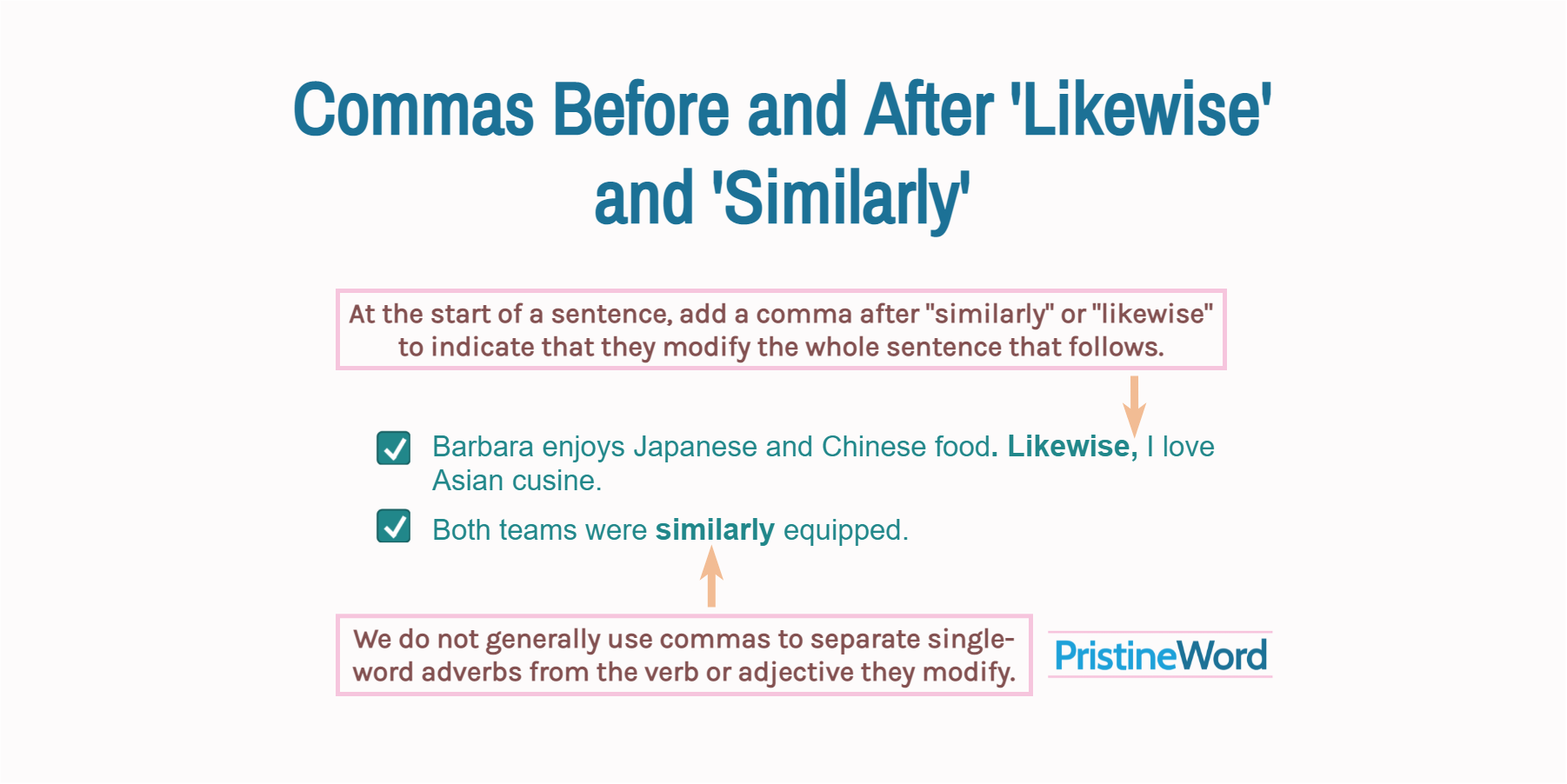Add a comma after "similarly" or "likewise" at the start of a sentence. Do not use commas, however, when using "similarly" or "likewise" to modify a single word (adjective, verb, or adverb) in the middle of a sentence.
Add a comma after "similarly" or "likewise" at the start of a sentence.
Barbara enjoys Japanese and Chinese food. Likewise, I love Asian cuisine.
Place these words between commas in mid-sentence to stress a pause before a phrase or clause.
Alex has learned a new programming language. You should, similarly, start a coding course.
Do not use commas, however, when using "similarly" or "likewise" to modify a single word (adjective, verb, or adverb) in the middle of a sentence.
Both teams were similarly equipped.
1. Punctuation
At the start of a sentence, add a comma after "similarly" or "likewise" to indicate that they modify the whole sentence that follows.
I learned to drive with my father. Likewise, I am teaching my daughter to drive.
Consumer prices are rising. Similarly, commodity prices are soaring.
In mid-sentence, we can set off these adverbs with commas to signal a strong interruption.
I've always wanted to visit Indonesia. My wife, likewise, would like to explore its wildlife and tropical forests.
But we do not generally use commas to separate single-word adverbs from the verb or adjective they modify.
The two essays are similarly structured.
I learned yoga, and some of my friends did likewise.
2. How to Use 'Similarly' and 'Likewise'
"Similarly" and "likewise" have the same meaning and are used in the same way. These words are typically used to introduce an idea or situation that you are comparing with one that you have recently mentioned—because they are similar or closely related.
I practice Spanish every day. Similarly, my son often reads Spanish novels.
I like tennis. Likewise, so does my wife.
Note that at the start of a sentence, we can use the structure "so + auxiliary verb + subject" after "likewise" or "similarly".
Jessica practices yoga and meditation. Likewise, so does Olivia.
Linda can play the guitar. Likewise, so can I.
The conjunctive adverbs "similarly" and "likewise" are commonly used in writing because they are considered more formal than other options such as "also" or "too".
Alternatively, you can use the expression "in the same way" instead. Follow the same comma rules when using this phrase.
James is good at playing soccer. In the same way, my brother is also a great player.
Alice loves Peter. In the same way, she is the most important person in his life.
Cherries are healthy because of its antioxidant properties. Strawberries and blueberries are, in the same way, also high in antioxidant plant compounds.

